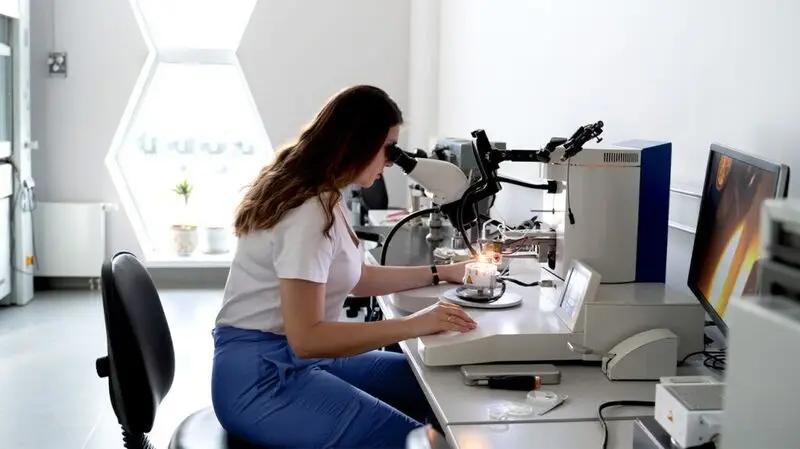
- As of 2019, about 4.9 million people globally were living with an inflammatory bowel disease (IBD) such as Crohn’s disease.
- Scientists are still unclear as to the exact cause of Crohn’s disease, which is a chronic autoimmune condition.
- Researchers from the Technical University of Munich report Crohn’s disease may be triggered by mitochondrial disruption causing changes to the gut microbiome, via a mouse model.
As of 2019, about 4.9 million people around the world were living with an inflammatory bowel disease (IBD) such as Crohn’s disease.
Crohn’s disease is a chronic autoimmune condition that causes your digestive tract to become inflamed for which there is currently no cure. Researchers are still unclear as to the exact cause of Crohn’s disease.
Now, researchers from the Technical University of Munich are hoping to shed some new light in this area with a new study reporting Crohn’s disease may be triggered through the disruption of the mitochondria, causing changes to the gut microbiome, via a mouse model.
The study was recently published in the journal
For this study, researchers used a mouse model where a specific gene segment was deleted, disrupting their mitochondrial function. The gene segment removed is responsible for making the protein Hsp60, which is needed to ensure mitochondria perform correctly.
According to the study’s scientists, the mitochondrial disruption caused injuries to the intestinal epithelium — a tissue lining the inside of the intestine — in the mice, consistent with those normally seen in people with Crohn’s disease.
Additionally, researchers reported the microbiome composition changes in the mice due to mitochondrial dysfunction.
Because of this, the scientists report they were able to demonstrate for the first time that disturbances to mitochondria are causally related to tissue damage in the intestines, and also cause disease-related shifts in the gut microbiome.
Researchers believe these findings may pave the way for new treatments for Crohn’s disease as medications are mainly limited to alleviating the symptoms of the disease.
“The big hope is to find active ingredients that would restore the functionality of disrupted mitochondria, in other words, to repair them in a sense,” Dirk Haller, PhD, chair of Nutrition and Immunology and director of Corporate Research Institute, Food and Health (ZIEL) at the Technical University of Munich, and lead author of this study says in a press release.
“This would limit intestinal damage as a trigger for chronic inflammation processes. Our results suggest that drugs that act on mitochondrial pathways or address the connections between the microbiome and mitochondria could be a key aspect of better treatments,” Haller adds.
After reviewing this study, Rudolph Bedford, MD, a board certified gastroenterologist at Providence Saint John’s Health Center in Santa Monica, CA, told Medical News Today researchers may have found the actual cause of Crohn’s disease, and maybe even ulcerative colitis or IBD in general.
“Now [t]he drugs that we use to treat (Crohn’s disease) are really more of an anti-inflammatory effect or suppression of the immune system, but actually finding the potential mechanism you might be able to actually provide therapeutic molecules or drugs to actually deal with the mitochondria itself, which activates the Crohn’s disease to begin with. So you may very well fine-tune your drug therapy,” Bedford explained.
“(As this study is) being done in mice it would be interesting to see if they can move it over to human models and see where we go with it. Or even with the mice, if there can be various drugs directed to repair the mitochondria, and see whether or not this reverses the intestinal inflammation caused by the mitochondrial dysfunction,” he added.
MNT also spoke with Rosario Ligresti, MD, FASGE, gastroenterologist at Hackensack University Medical Center in New Jersey, who commented that understanding the role of mitochondrial dysfunction in Crohn’s disease is essential for developing new and more effective treatments for this debilitating condition.
“This research has the potential to help improve the lives of people who suffer from Crohn’s disease. This research does help provide a deeper understanding of the disease. Crohn’s disease is a complex IBD with no definitive cure. Studying mitochondrial dysfunction can help us understand the underlying mechanisms of the disease, leading to better diagnosis and treatment strategies,” Ligresti continued.
“Mitochondria play a vital role in cellular energy production, metabolism, and immune response. By understanding how mitochondrial dysfunction contributes to Crohn’s disease, researchers can identify potential targets for new therapies that address the root cause of the disease, rather than just managing symptoms.”
— Rosario Ligresti, MD, FASGE
Ligresti said that studying mitochondrial dysfunction may also allow for the development of personalized medicine approaches for Crohn’s disease.
“This could involve tailoring treatment strategies based on an individual’s specific mitochondrial profile and genetic makeup. Research on mitochondrial dysfunction in Crohn’s disease may have broader implications for understanding other inflammatory and autoimmune diseases, as mitochondrial dysfunction is increasingly recognized as a common factor in these conditions,” he detailed.
Ligresti said it is important for researchers to continue to look for potential triggers of Crohn’s disease as understanding those triggers could lead to preventive measures, potentially reducing the number of people who develop the disease.
“This could involve lifestyle changes, dietary modifications, or environmental interventions. Knowing the potential triggers could help individuals at risk for Crohn’s disease to be more aware of their symptoms and seek early diagnosis and treatment. This could prevent the disease from progressing and causing severe complications.”
— Rosario Ligresti, MD, FASGE
“Identifying triggers can provide valuable insights into the underlying mechanisms of Crohn’s disease. This knowledge can help researchers develop more effective treatments and potentially even a cure for the disease,” Ligresti added.





